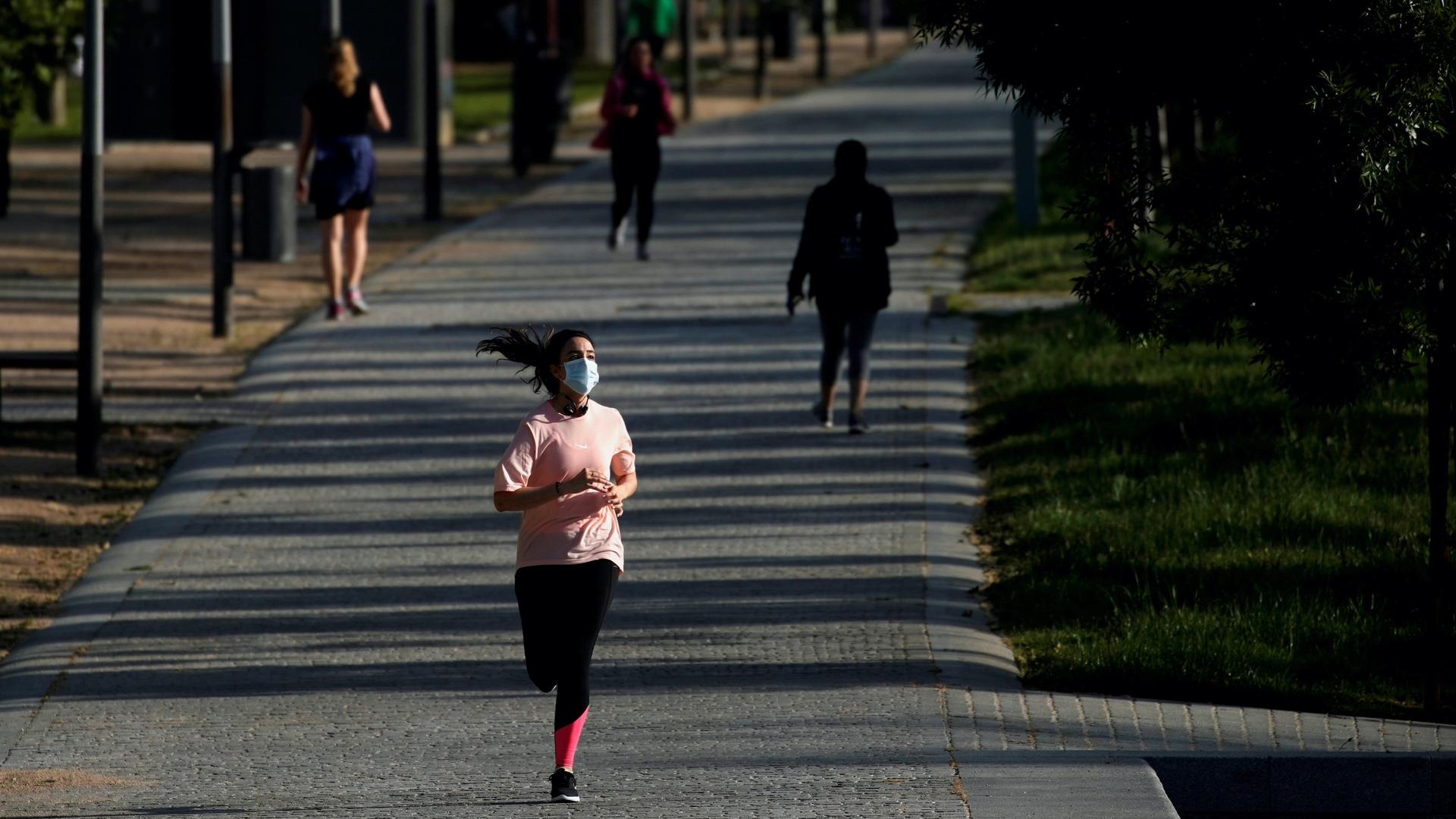On warm spring evenings, citizens in Madrid, Spain, take their daily exercise during time slots allotted by the government. Children are allowed out until 7 p.m. Those over 70 take the next shift until 8 p.m., and then it’s everyone else’s turn.
Related: Kids in Spain venture outside for the first time in weeks
The city’s often narrow sidewalks are packed with people getting some relief from being cooped up all day at home — but you won’t find anyone in Madrid’s beautiful parks.
The coronavirus hit Madrid, Spain’s capital city, harder than any other city in the country. Madrid mayor José Luis Martínez Almeida has kept parks closed to stop large gatherings. But citizens are increasingly angry with the lack of green space in a city where most residents live in small, cramped apartments.
Related: This Spanish trio makes socially conscious music under lockdown
Enter Jose-Luis Mazón Costa, a lawyer who calls himself a Don Quixote for the 21st century. Like the protagonist of Miguel de Cervantes’ classic 17th-century novel, he sees taking back the city’s parks as a noble quest.
Mazón Costa deliberately tried to enter a closed park in the west of the city in early May and was quickly stopped by the police. He returned home with a possible fine of approximately $1,640 and the fury of a man wronged.
The lawyer has filed two legal complaints — one criminal and one civil — against the mayor of Madrid. He accuses Almeida of exercising powers that belong to the national government during the coronavirus pandemic, and of impeding citizens’ freedom of movement within the city.
“When I want to use my exercise time, the six hours a day the government gives me to leave my prison — that’s my house — I find that the mayor of Madrid has closed all the parks? Well, that seems absurd to me.”
“When I want to use my exercise time, the six hours a day the government gives me to leave my prison — that’s my house — I find that the mayor of Madrid has closed all the parks? Well, that seems absurd to me,” he told The World.
A Madrid court will hear his case this Saturday, and he is optimistic about his chances. “I think 2020 is the year everything changes. It’s a year of great possibilities, a year when lost causes will win out. Why? Because the existing power structures are being dismantled. And this thing with the parks in Madrid, it’s a sign,” he said.
“The parks are where you go to breathe again.”
Spain is a sparsely populated country, but its cities are some of the most densely populated in Europe, he noted. “Here we don’t have gardens. Those of us who live in Madrid maybe have some flowerpots you can hang on the balcony, and that’s it. The parks are where you go to breathe again,” he added.
Mazón Costa can already claim a small victory. Right after his first legal complaint was filed, the city agreed to reopen some of its much smaller green spaces, while insisting the large parks had to stay shut.
Whether this Don Quixote of the parks will succeed in his quest is up to the judge.
Resident Alia Ponz is also feeling restless. She has to walk around the perimeter of one of Madrid’s largest parks, El Retiro, because its gates remain firmly shut.
“I haven’t been out much, to be honest with you. There have been days where I’ve felt a bit overwhelmed by this. But every two or three days I do try to get out of the house.”
“I haven’t been out much, to be honest with you. There have been days where I’ve felt a bit overwhelmed by this. But every two or three days I do try to get out of the house.” she told The World. As she attempted a stroll, other walkers vied for space to keep the mandatory six feet from each other.
Some joggers have taken to bus lanes.
Related:Canada closes most of its great outdoors to curb COVID-19
Although Madrid closes some roads to traffic during the weekend, keeping a safe distance to avoid contamination is impossible with the volume of people on the streets.
While other regions have moved into Phase One of the staged exit from lockdown, Madrid, along with Barcelona, is stuck in Phase Zero, meaning bars and restaurants cannot open their outdoor terraces or offer table service, and there are severe restrictions on open businesses.
Madrid will stay this way until more hospital beds are available, and more staff are working in primary care clinics, the government has said.
Related: Spain nationalizes private hospitals to battle COVID-19
“At the beginning of the pandemic, it seemed like a reasonable measure, to prevent people from gathering in the parks. But after the first few days when we were allowed out to walk again, people had to stick to the edges of the park,” she said.
Ponz originally supported the city’s policy to close the parks, but she has changed her mind.
